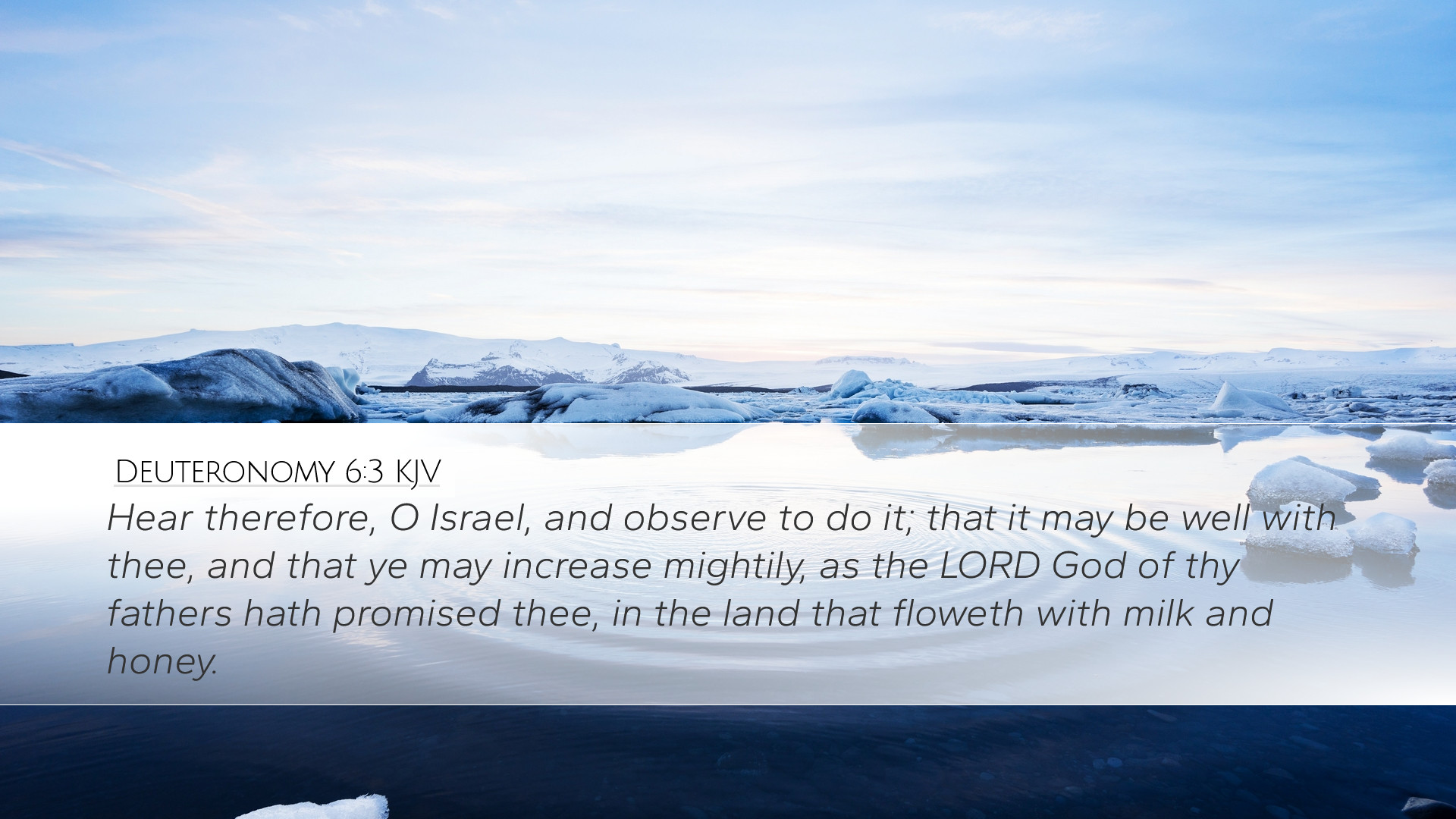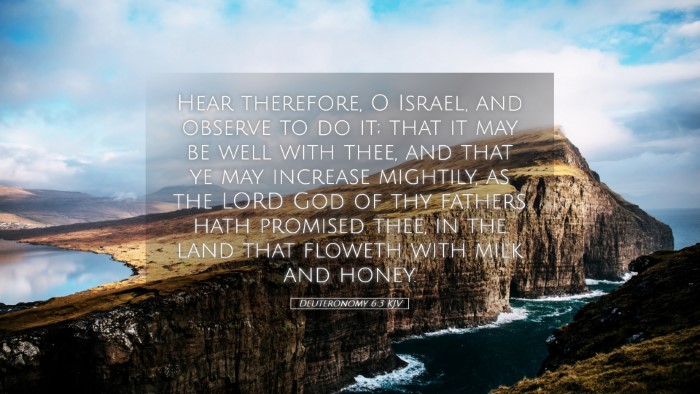Bible Commentary on Deuteronomy 6:3
Verse: "Hear therefore, O Israel, and observe to do it; that it may be well with thee, and that ye may increase mightily, as the Lord God of thy fathers hath promised thee, in the land that floweth with milk and honey."
Introduction
Deuteronomy 6:3 serves not only as a directive for the people of Israel but also as an encapsulation of the covenant relationship between God and His chosen people. This verse summons attention to obedience and the blessings that follow. In this examination, we will explore insights from notable public domain commentaries including those of Matthew Henry, Albert Barnes, and Adam Clarke.
Analysis of the Verse
In this concise command, there are several key components that merit consideration:
- The Call to Hear: The word “hear” signifies more than passive listening; it embodies an active commitment to heed God’s Word.
- Observance and Action: The mandate to “observe to do it” implies that understanding God’s commands must lead to action, aligning one’s life with divine principles.
- The Assurance of Blessing: The verse assures that adherence to God’s ways will result in well-being and prosperity “in the land that floweth with milk and honey,” a metaphor for abundance and blessing.
Commentary Insights
Matthew Henry
Matthew Henry emphasizes the importance of the call to “Hear therefore, O Israel.” He notes that this summons indicates the gravity and significance of the message God conveys. In Henry's view, the listener's responsibility is twofold: to hear and to act. He further outlines that the promise of well-being and mighty increase is contingent upon their obedience.
Albert Barnes
Albert Barnes provides a thorough exegesis on the phrase “that it may be well with thee.” He conveys that this verse forms a foundation for understanding the interdependence of faith and action. Barnes argues that the prosperity of the Israelites in their new land hinges upon their fidelity to God's commandments. He asserts that this promise is not just for individual blessing but extends to the community as a whole, illustrating God’s desire to sustain a nation that honors Him.
Adam Clarke
Adam Clarke offers a historical context that showcases the covenant relationship inherent in this verse. Clarke emphasizes that the blessings promised are rooted in the faithfulness of God to His covenant with the ancestors of Israel. He notes that "the land that floweth with milk and honey" encapsulates the richness of God’s provision, a tangible expression of His protection and favor upon His people.
Theological Implications
This verse underscores several profound theological themes that are essential for pastors, students, theologians, and scholars:
- Covenantal Faithfulness: The relationship between God and Israel is rooted in covenant—a binding agreement characterized by mutual commitments. God's expectation of obedience comes with the assurance of blessings.
- The Nature of Obedience: Obedience is an act of love and faith, suggesting that the followers of God must engage with His Word actively and robustly.
- Corporate vs. Individual Responsibility: While individual obedience is crucial, there is a corporate dimension that affects the community. The blessings promised are both individual and communal.
Practical Applications
For contemporary ministry, this verse offers several applications:
- Encouragement to Listen: Pastors can encourage their congregations to engage deeply with Scripture, emphasizing the need to hear and apply God's Word in daily life.
- Communal Worship and Obedience: The rich imagery of a land flowing with milk and honey can serve as a reminder of God’s blessings when communities pursue righteousness together.
- Fostering Generational Commitment: Teachings derived from this verse can be shared across generations, emphasizing that obedience to God is foundational for blessed living.
Conclusion
Deuteronomy 6:3 encapsulates the essential Christian mandate of obedience to God, the richness of His promises, and the communal aspect of faith. As believers reflect on this verse, it serves as a call to active engagement with divine commands while trusting in His faithfulness for their spiritual journey and community life.


